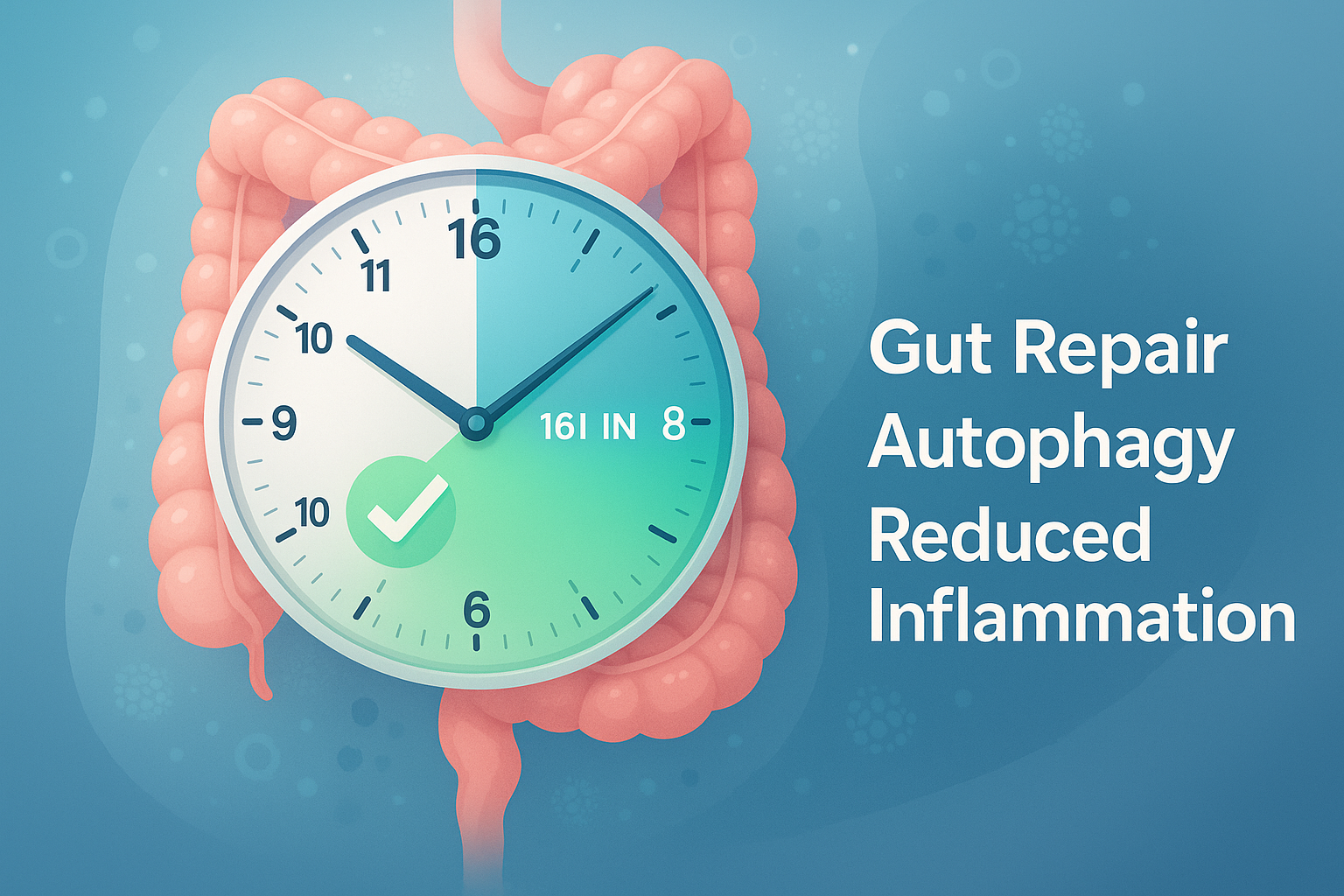How Does Intermittent Fasting Help with Gut Problems? A Natural Reset for Digestive Health

Could Giving Your Gut a Break Be the Missing Link to Better Digestive Health?
If you deal with bloating, gas, acid reflux, constipation, or IBS, you know how disruptive gut issues can be. You’ve tried probiotics, eliminated foods, and taken antacids—but nothing seems to work long-term. Here’s a powerful yet simple strategy that’s often overlooked:
Intermittent fasting.
More than just a weight loss tool, intermittent fasting (IF) may be one of the most effective and natural ways to improve gut health. By giving your digestive system structured periods of rest, you allow time for healing, microbiome rebalance, and reduced inflammation.
In this article, we’ll explore exactly how intermittent fasting supports digestive health and why it could be the gut reset your body is craving.
What Is Intermittent Fasting?
Intermittent fasting is the practice of cycling between periods of eating and fasting. It’s not a diet—it’s a timing strategy.
Popular Fasting Schedules:
- 16:8: Fast for 16 hours, eat in an 8-hour window
- 14:10: A gentler version—good for beginners
- 5:2: Eat normally 5 days per week, restrict calories 2 days per week
By shortening your eating window, you give your digestive tract time to rest, reset, and repair.
How Intermittent Fasting Helps Heal the Gut
Here’s how giving your digestive system a break improves gut health in multiple ways:
1. Activates the Migrating Motor Complex (MMC)
The MMC is a cleansing wave that moves through your small intestine between meals, pushing out food particles, bacteria, and debris.
When you eat too frequently or snack all day, the MMC never activates—leading to bacterial overgrowth and sluggish digestion.
Fasting allows the MMC to fully complete its cycle every 90–120 minutes, which helps:
- Prevent small intestinal bacterial overgrowth (SIBO)
- Reduce bloating and gas
- Improve motility and regularity
2. Reduces Inflammation in the Gut Lining
Chronic eating, processed foods, and food sensitivities can inflame the gut lining and lead to leaky gut (increased intestinal permeability).
Fasting gives your gut a break from constant exposure to food antigens and inflammatory triggers.
Studies show that intermittent fasting:
- Lowers intestinal inflammation
- Reduces cytokine production
- Improves gut barrier integrity
This is especially helpful for those with:
- IBS
- Crohn’s disease
- Ulcerative colitis
- Food intolerances
3. Improves Microbiome Diversity and Balance
The gut microbiome—the trillions of bacteria living in your intestines—needs rhythm and balance. Constant grazing can disrupt microbial patterns.
Fasting supports:
- Microbial diversity (linked to better immunity and mood)
- A healthier Firmicutes-to-Bacteroidetes ratio
- Growth of beneficial bacteria that thrive during fasting
A balanced microbiome improves digestion, reduces inflammation, and supports nutrient absorption.
4. Promotes Gut Cell Regeneration
Your intestinal lining regenerates every 4–5 days. Fasting activates stem cells and cellular repair pathways (like autophagy) that improve gut lining integrity.
This can reduce leaky gut and help your digestive tract rebuild stronger and more resilient tissue.
5. Supports Stomach Acid and Enzyme Balance
Eating too often can confuse your digestive rhythm, weakening enzyme production and stomach acid levels—leading to:
- Bloating
- Reflux
- Poor protein digestion
Fasting helps reset your body’s natural production of:
- Stomach acid (HCl)
- Digestive enzymes
- Bile flow (for fat digestion)
This makes digestion more effective when you do eat.
6. Improves Blood Sugar and Insulin—Which Affects the Gut
High insulin and blood sugar dysregulation are often linked to dysbiosis, candida overgrowth, and constipation.
Intermittent fasting:
- Stabilizes insulin levels
- Improves glucose tolerance
- Helps reduce fungal and microbial overgrowth fueled by sugar
A more stable internal environment = a happier, healthier gut.
Conditions That May Improve with Intermittent Fasting
- IBS (Irritable Bowel Syndrome)
- SIBO (Small Intestinal Bacterial Overgrowth)
- Leaky Gut
- Candida Overgrowth
- Acid Reflux or GERD
- Constipation or bloating
- Post-antibiotic dysbiosis
Fasting alone may not cure these, but it can significantly support other therapies.
How to Start Intermittent Fasting for Gut Health
1. Start Gradually
Begin with a 12-hour fast (7 PM to 7 AM), then build to 14:10 or 16:8 as tolerated.
2. Break Your Fast with Gut-Friendly Foods
- Bone broth
- Cooked vegetables
- Clean proteins (eggs, salmon, turkey)
- Fermented foods (yogurt, sauerkraut, kefir)
- Anti-inflammatory herbs (ginger, turmeric)
3. Stay Hydrated
Drink filtered water, herbal teas, or add electrolytes during your fast.
4. Avoid Trigger Foods
When you do eat, minimize processed foods, refined carbs, gluten, dairy, and seed oils if you're sensitive.
When to Avoid or Modify Fasting
Fasting is powerful, but it’s not for everyone in every stage of life.
Use caution if:
- You’re pregnant or breastfeeding
- You’re underweight or have a history of disordered eating
- You have very high stress or poor sleep (start with gentler fasting)
Women may benefit more from 14:10 fasting than longer fasts during certain parts of the menstrual cycle.
Final Thoughts: Intermittent Fasting Is a Gut Health Game-Changer
If you’ve been chasing gut fixes through supplements and diets but still struggle with bloating, discomfort, or irregularity, intermittent fasting may be the missing link.
By giving your digestive system time to rest, cleanse, and heal, you create the ideal environment for a balanced microbiome, better digestion, and a stronger gut barrier.
At Sheen Vein & Cosmetics, We Help You Heal Your Gut at the Root
Our functional medicine team helps you pair intermittent fasting with advanced gut testing, personalized nutrition, and microbiome support to restore digestive health from the inside out.
Schedule a consultation today and discover how timing your meals may help your gut heal—and your whole body thrive.